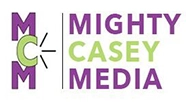This story from PBS Newshour clearly shows how important it is to ask questions, and shop around, when it comes to prescription drug prices. Think a generic drug guarantees a lower price? Not so much. Watch this story, and learn how the same generic drug can cost anywhere from $11 to $455. The best way to get the lowest price? The same way you shop for shoes, or appliances: research online, ask local retailers, and make an informed decision.
Last year’s look-ahead for 2012 was a 5-point manifesto. Reviewing progress against that list, I see that I did pretty well, with only #2 falling a little short – which is not a bad track record. This year, I’m keeping it tight. I’m going with a 2-rule manifesto. Rule #1: Be accountable We’ve all got metrics to measure ourselves against. Revenue, connections, sales, errors, accomplishments – all of those are important. The trouble comes when you focus too much on one area, which usually means that other important metrics wind up taking a back seat. If you focus exclusively on incoming revenue, you might miss some mistakes that will cost you at least some of that revenue. If you concentrate only on building more connections in the industry, you might lose some long-term relationships that are just starting to ripen. For me, accountability this year will be tied to two metrics: raising the revenue gained from the speaking side of my business, and widening my marketing net beyond the mid-Atlantic region. Tracking both will be easy, and each will challenge me to focus very tightly on activities and outreach that will move my game-plan forward. Accountability – at least here at Mighty Casey Media – will be baked in to the spreadsheet I’ll use to track that game-plan. What accountability will you bake in to your 2013 goals? How will you track your progress? Who will you report to? That last one is a challenge for me, since I’m a solo-preneur. Stay tuned, since one of my accountability check-boxes will be reporting progress here, on the Mighty Mouth Blog. Rule #2: Laugh more, bark less That’s a purposeful scrambling of the “wag more, bark less” bumper sticker I see … everywhere. My version of wagging is laughter. If I’m laughing,…
A group of about 20 passionate e-patients, including e-Patient Dave his own self and yours truly, gathered around a biiiiig table on Monday in Philadelphia to talk about what an e-patient Bill of Rights might look like. I have to give a shout-out to my buddies at WEGO Health, particularly Jack Barrette, Bob Brooks, and Natalia Forsyth One conclusion: don’t call it the e-patient Bill of Rights. Since we’re talking digital healthcare, let’s call it the Digital Patients Bill of Rights. That conclusion was reached hours into the discussion, which ranged over topics from chronic conditions like diabetes, HIV/AIDS, multiple sclerosis, rheumatoid arthritis, lupus, multiple sclerosis, and fibromyalgia to acute illness like cancer. We had about four hours to hammer out a first-principles statement, and Mark Bard of the Digital Health Coalition deserves the Cat-Herding Nobel Prize for keeping a group of vocal, passionate, diverse e-patients on task. To lift directly from the Klick Pharma blog (Klick was one of the sponsors of the event, along with Pixels & Pills, Health Central, Care Coach, Kru Research, Radian 6, Red Nucleus, Think Brownstone, Verilogue, and a who’s who of health media sponsors): “After an intense four hours, we were able to reach consensus on the following key messages as a foundation to a Digital Patient Bill of Rights: Shared access to my data Attitude of collaboration and overall respect The patient is the largest stakeholder Transparency and authenticity across all areas Voice of the patient is a legitimate (clinical) source The right to efficient communication with providers who utilize the technology that we need” It’s a start. A damn good one. The Klick Pharma blog post also has a full list of all the e-patients who participated in the conversation. It was quite a day. Some of my thoughts about the conversation, and the event: Those dealing with chronic conditions have an even deeper need to be activist e-patients. They also have a greater level of knowledge, and can be true leaders in this on-going discussion. Each healthcare…



